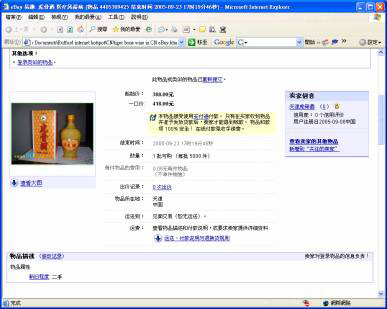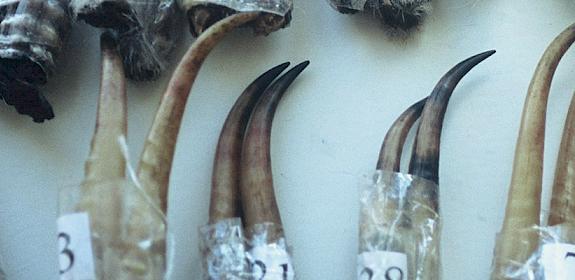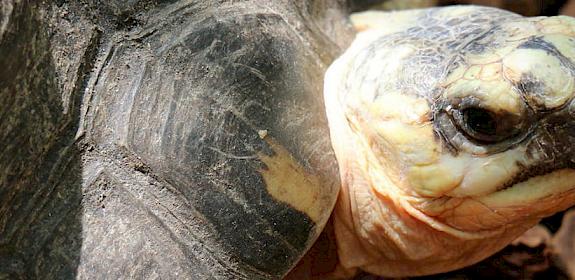Illegal wildlife trade flourishing on the Chinese-language internet
Beijing, China, 28th January 2008 - Thousands of products made from threatened species are openly being advertised on the Chinese-language internet each day. A new TRAFFIC investigation monitoring websites in mainland China, Hong Kong and Taiwan has uncovered thousands of products made from threatened wildlife protected under CITES, including elephants, rhinoceroses, Tigers and marine turtles.

While wildlife law enforcement has made gains in policing physical markets for wildlife, the internet presents new challenges. Virtual markets allow buyers and sellers to connect with ease and speed, and have yet to be properly regulated, putting new pressures on wild populations of threatened species.
To address the growing need for effective internet monitoring related to wildlife trade, TRAFFIC’s study seeks to promote future efforts to keep online trade legal and sustainable. The study surveyed popular auction websites, Yahoo and eBay, in addition to several independent websites with wildlife trade themes in mainland China, Hong Kong, and Taiwan. Auction and theme websites in all three markets were monitored for eight months, with auction websites monitored weekly, then later biweekly. Due to a smaller frequency of change, theme websites were surveyed monthly.
Over the course of the study, surveyors identified 4291 unique advertisements for wildlife products. Auction sites from mainland China yielded the highest number of advertisements, followed by Taiwan and Hong Kong. Even accounting for the likelihood that a proportion of the offers aim to swindle buyers (ie, sellers have no intention of providing the advertised products), the extent of wildlife being offered for sale over the internet in apparent contravention of international and national laws is alarming.
“Internet service providers and websites need to take greater responsibility for keeping wildlife trade legal,” said Joyce Wu, Programme Officer for TRAFFIC East Asia, “Government authorities must also ensure that wildlife trade on the internet conforms to the same regulations as wildlife in physical markets.”
Progress is being made in this difficult task: during the course of the study, wildlife trade authorities in China, Hong Kong and Taiwan were informed about suspected illegal trade. In each case, the authorities acted quickly to investigate these apparent breaches in the law, resulting in the removal of advertisements, the interception of deliveries and the conviction those involved.
The report recommends wildlife authorities develop strategies to police virtual markets, make greater efforts to bring web-based markets under the same regulatory structure as physical markets, and alert internet shoppers to the growing use of the internet for illegal wildlife trade.
Following the report, TRAFFIC has met with the China CITES Management Authority and the China Internet Information Security Monitoring Bureau (a section of the Ministry of Public Security) to address these issues. On January 11, 2008, the groups met with major website companies – Taobao, eBay and Tencent – and other relevant organizations including the State Forestry Administration and the Customs Bureau to find ways to work together to control illegal wildlife trade on the internet.



